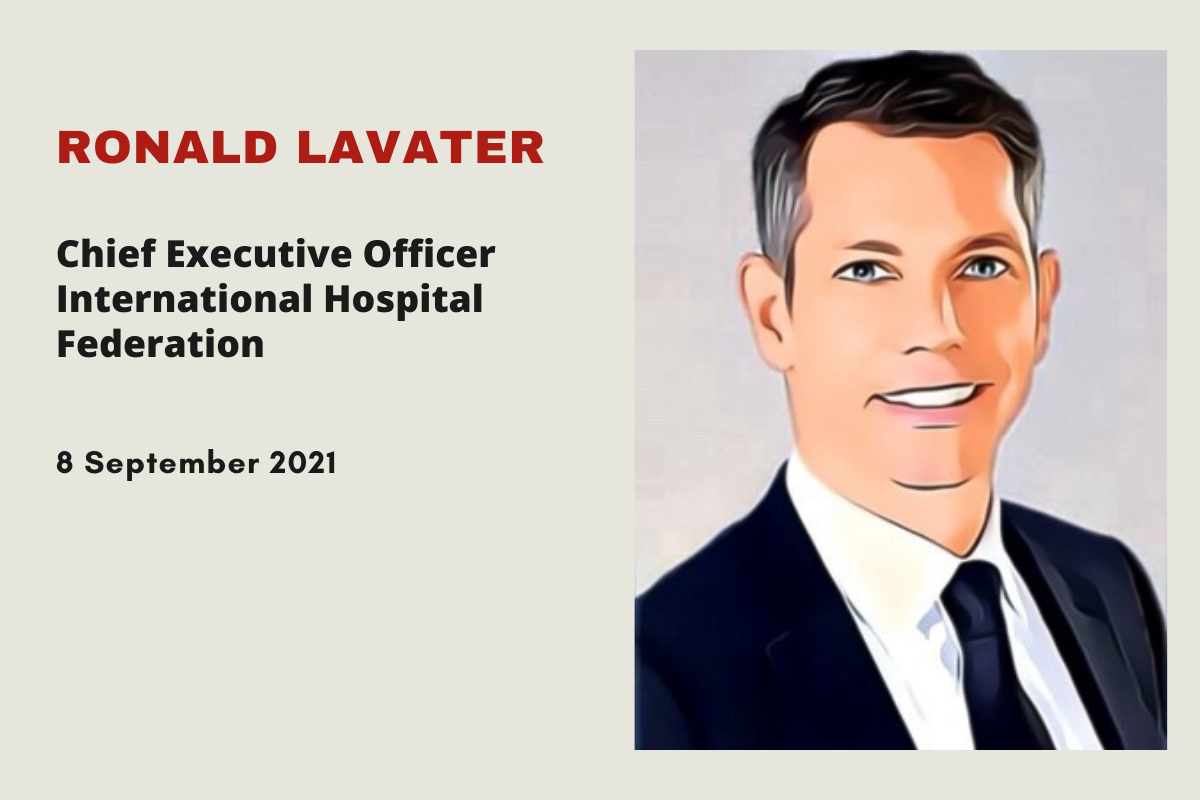The interview | Ronald Lavater
 | How would you present your organization in a few words? What entails your position? What is your goal? |
The International Hospital Federation (IHF) is the NGO that has been the voice of international healthcare for more than 90 years, promoting excellent management standards among hospitals and health service organizations. We have representation from over 100 different organizations, and, through them, we are connected to over 20,000 hospitals and healthcare organizations.
As CEO, the essence of my role is strengthening the IHF’s reputation and growing our membership and strategic partnerships. I’m focused on delivering value to our members, advocating on their behalf, investing resources in the areas that matter the most to them, and celebrating the impact of our activities. I’m also driving the development of the IHF’s work to help hospital leaders meet and thrive through future challenges.
My goal is to advance IHF’s vision: a world of healthy communities served by well-managed hospitals and health services where all individuals reach their highest health potential. My time and energies are going into our activities to promote knowledge exchange, good practice, and international collaboration. Excellence in hospital leadership is the thread connecting everything that we do.
 | Among the concentration of actors in Geneva (IOs, NGOs, permanent missions, academia, and the private sector), who do you work with and how? |
Partnership is a very important component of the IHF’s work. Whether we act bilaterally or as part of large networks, collaboration with other stakeholders is an opportunity to ensure our members’ voice is heard by the international healthcare community.
Our partners range from not-for-profit, non-governmental, international associations to commercial companies.
We are pleased to be in official relations with the World Health Organization (WHO) and have a long history of successful collaborations. Over the years, the IHF has been involved in many meaningful activities at both the WHO headquarters and WHO regional offices: we represent the voice of the hospitals; we advocate for the professionalization of hospital management and leadership; and we are involved in various joint studies and initiatives.
We are members of the “Health Care in Danger” initiative of the International Committee of the Red Cross (ICRC) and, together with five other NGOs, we are partners of the Consensus Framework for Ethical Collaboration.
We also participate in our partners’ international events and activities, and we arrange joint events with sister organizations (e.g. the “Hospital Workers’ Wellbeing Matters” virtual event with the International Society for Quality in Health Care (ISQua)).
 | What are the strengths are weaknesses of Geneva with regards to the development of your activity? |
The IHF is proud to be headquartered in Geneva and to be part of “International Geneva”, the ecosystem of health NGOs and other actors.
Geneva is a special place for any organization with an international scope. The accessibility of so many world-leading NGOs and institutions makes for a dynamic and stimulating environment. We operate in an increasingly digital landscape but having the opportunity to build partnerships and collaborations in face-to-face meetings is still very helpful. Having so many healthcare organizations headquartered in Geneva, such as the WHO, the ICRC, the International Council of Nurses (ICN), and the World Medical Association (WMA), also has the benefit of facilitating dialogue and transversal initiatives, ensuring healthcare is considered holistically.
Another plus to being in Geneva is that it is truly international, and the NGOs attract professionals from anywhere and everywhere. Whether you consider it to be the size of a village or a city, you can't fail to appreciate its diversity. And that serves as a daily reminder that we are working on behalf of the globe.
One downside to such a high concentration of NGOs is that it can be hard to highlight our role under the shadow of our larger neighbours. However, as the IHF starts the countdown to its 100th birthday, I'm confident that the relevance of our contribution will continue to stand the test of time.
 |
|
In my view, the future of a good model for governance at a national, local, or organizational level requires the same principles today as it will in 20 years. Good governance needs to be a two-way conversation with strong engagement from all parties and consistent and clear communication.
We already live in a reality where feedback on an experience or situation can be shared with the world instantly. This places even more emphasis on good communication and demands transparency and accountability in managing an organization, be it a private business or an NGO. Activism and local issues can quickly become a global concern. This will certainly shape the governance landscape of the future.
COVID-19 has also refocused priorities. It is clear that some organizations handled the pandemic better than others, and we can take the view that resilience and agility have been crucial elements in a leadership context. Good governance of healthcare organizations should place resilience and agility at the top of the leaders’ competence list, along with sustainability and inclusivity.
